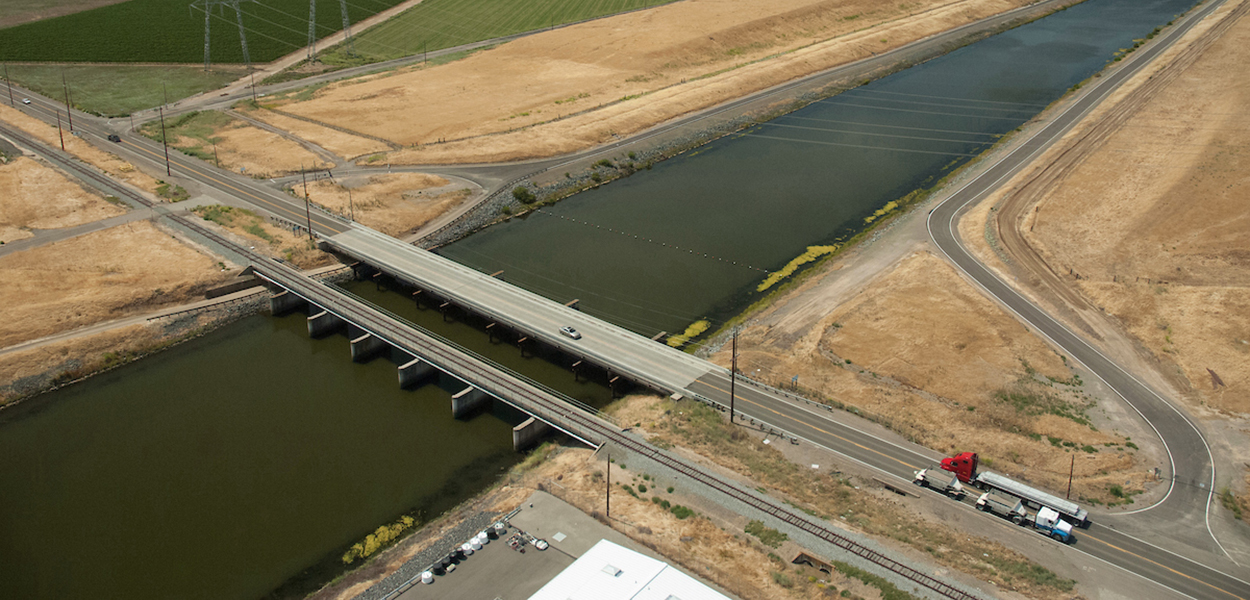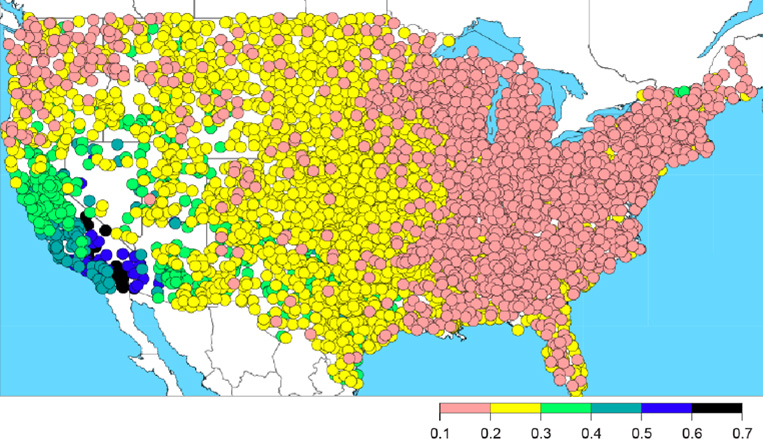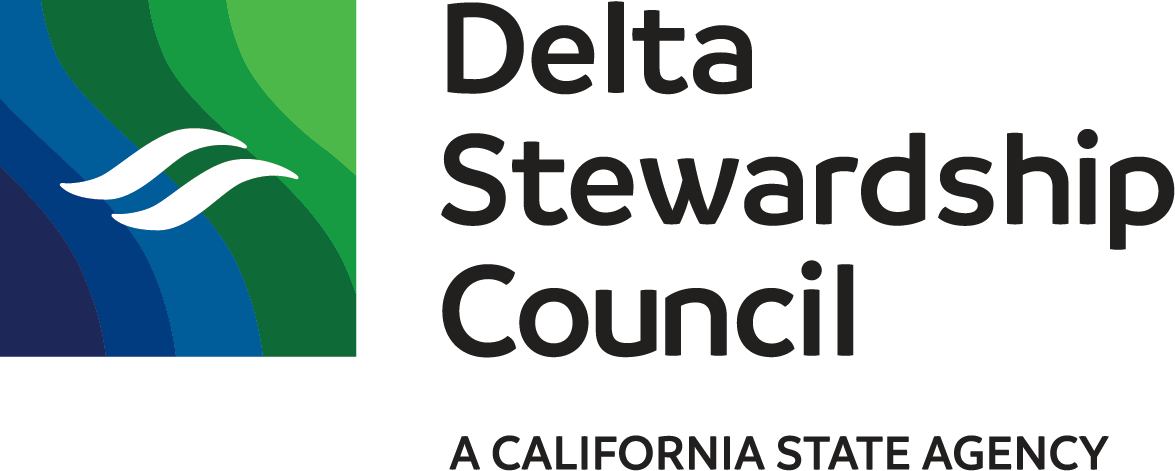
Smarter Gambling with California’s Water Challenges
August 30, 2022
By Delta Independent Science Board Members Dr. Jay R. Lund and Dr. Thomas L. Holzer
Anyone familiar with California, knows it as a land of opportunities, risks, and complex unintended consequences, especially in water and environmental management. Felicia Marcus, a former State Water Resources Control Board chair and Delta Stewardship Council member, recently remarked in the LA Times that managing water in California is like gambling.
California has more drought and flood years per average year than any other part of the United States. California’s climate has immense natural variability, illustrated in Figure 1. As a result, California has always been challenging for water management. Most climate change modeling shows California weather extremes becoming even more frequent and intense.
Figure 1. Coefficient of variation for annual precipitation (standard deviation/average) (Dettinger et al 2011)

California’s hydrologic variability and uncertainty force water managers and large water users, particularly agriculture, to play the odds. Like anyone forced to gamble one takes pains to calculate the odds, prepare for extremes (even surprises), and seek supplies and investments that provide cost-effectiveness, adaptability, and good performance, in this case, for both humans and ecosystems.
To manage extremes and uncertain futures, California has developed water management infrastructure and institutions that dampen this variability and improve water supply for human purposes. As human water demands have grown, California’s water management portfolio has expanded from traditional reservoirs, canals, and diversions to include permanent and drought water conservation, groundwater recharge, voluntary water markets and transfers, wastewater reuse, and even some expensive ocean desalination. The diversification of its water supply portfolio has made California’s water system much more complex, but far more flexible and capable of managing extreme events.
This success is relative, compared to other dry regions globally, and is far from absolute – we still have drought and flood damages. New challenges jeopardize this partial success. Among these challenges, ecosystem degradation is major and precipitous. Climate change (e.g., warming, changes in precipitation and runoff, and sea-level rise) reduces water supplies and increases floods, compounds ecosystem threats, and threatens infrastructure broadly.
As California must continue to “gamble” its way into the future, calculating the odds and prudently preparing for extremes and surprises will become more important, complex, and sometimes controversial.
The Delta Independent Science Board recently completed a systematic review of water supply reliability estimation for California, which is relevant for the management of the Sacramento-San Joaquin Delta. This report includes many topics of interest to water aficionados, users, and policymakers, especially those new to the subject:
- review of water supply reliability studies, particularly in California, and their use for policy, planning, and operations problems now and in the future, including a sizable literature on the subject;
- expanding water reliability studies to address water system performance reliability by including a broader range of water sources and management actions and performance objectives, particularly more explicit ecological objectives;
- including climate change in water supply reliability studies;
- including surprises and extreme events in water reliability assessments; and
- how the state might establish information infrastructure to make water supply reliability studies more useful across agencies and to policymakers.
Findings and recommendations of this review include…
- Reliability estimation is vital for supporting ecosystems, as well as human uses of water, but most agencies are not well prepared for such analyses.
- Water supply systems need more analysis on water system performance reliability than traditional water source reliability. This would include assessments of the ecosystem, economic, health, and social performance expected with likely future conditions and for extreme scenarios to help prepare for surprises.
- Water supply reliability analyses in California should reflect portfolio-based water management to improve cost-effectiveness and equity in water management among diverse entities.
- Clear communication and integration of reliability analyses into decision-making can improve deliberations on performance and trade-offs.
- More formal quality control and documentation of supply analyses should be encouraged and sometimes required for water supply reliability studies.
- The next generation of State-sponsored water supply system models for reliability estimation should be built, updated, and evaluated by a consortium of State and federal agencies and external experts.
- Estimation methods should be updated to reflect accumulated and expected climate change effects, combined with uncertainty analysis.
Water supply reliability studies are opportunities to better understand the many water management activities that are likely to affect objectives people care about. Such studies provide a firmer basis for Delta water policy and management discussions across agencies and stakeholders. In managing this problem, it is important to follow the water. As conditions change, meeting the water demands of California and the Delta will be even more challenging and confusing without suitable and insightful water supply system reliability studies.
For a synopsis of this report, read this summary.
Further reading
- Delta Independent Science Board. 2022. Review of Water Supply Reliability Estimation Related to the Sacramento-San Joaquin Delta. Report to the Delta Stewardship Council. Sacramento, California.
- Dettinger, M.D.; Ralph, F.M.; Das, T.; Neiman, P.J.; Cayan, D.R. Atmospheric Rivers, Floods and the Water Resources of California. 2011. Water, 3, 445-478. https://doi.org/10.3390/w3020445
- ”Dr. JAY LUND: Smarter Gambling with Water – Review of Water Supply Reliability Estimation,” Maven’s Notebook https://mavensnotebook.com/2022/06/30/dr-jay-lund-smarter-gambling-with-water-review-of-water-supply-reliability-estimation/
- ”Dr. JAY LUND: Water Supply Reliability Estimation: An overview,” Maven’s Notebook, March 2019 https://mavensnotebook.com/2019/03/06/dr-jay-lund-water-supply-reliability-estimation-an-overview/ YouTube: https://www.youtube.com/watch?v=dodhaLoPCXM
About the Authors

Dr. Jay Lund - Past Chair of the Delta Independent Science Board
Co-Director, Center for Watershed Sciences, and Distinguished Professor of Civil and Environmental Engineering, University of California, Davis, California
Dr. Lund’s research and teaching interests focus on applying systems analysis and economic methods to infrastructure and environmental problems, including policy, planning, and management studies. Dr. Lund’s work is primarily in water resources and environmental system engineering. He received his Ph.D. in civil engineering from the University of Washington. He has been honored with numerous awards including the California Water and Environmental Modeling Forum's Hugo B. Fischer Award, membership in the US National Academy of Engineering, and Distinguished Member of ASCE.

Dr. Thomas L. Holzer - Member of the Delta Independent Science Board
Scientist Emeritus, United States Geological Survey
Dr. Holzer is an engineering geologist. His areas of expertise are in earthquake-induced liquefaction, including evaluating hazards and risks of liquefaction, and land subsidence caused by groundwater withdrawal. Dr. Holzer served at the United States Geological Survey from 1975 to 2016 (he is now an emeritus scientist) and held an appointment as a consulting professor at Stanford University from 1994 to 2016. He has worked on many notable research projects, such as studying global earthquake fatalities, hazard mapping for liquefaction in the San Francisco Bay Area and other regions, investigating ground failure caused by groundwater withdrawal, and evaluating the impacts of the 1989 Loma Prieta earthquake. He has published more than 100 peer-reviewed publications. In addition, he has served on many advisory panels, including chairing the National Academy of Sciences/National Research Council Panel on Land Subsidence from 1985 to 1991 and the committee that developed the 2003 plan for coordinating post-earthquake investigations by Federal agencies. He received his Ph.D. in geology and M.S. in hydrology from Stanford University and his B.S.E. in geological engineering from Princeton University.
About the Delta Independent Science Board
The Delta Independent Science Board (Delta ISB) is a standing board of nationally or internationally prominent scientists with appropriate expertise to evaluate the broad range of scientific programs that support adaptive management of the Delta. The Delta ISB will provide oversight of the scientific research, monitoring, and assessment programs that support adaptive management of the Delta through periodic reviews of each of those programs. The comments, findings, and recommendations from the Delta ISB are expected to increase scientific credibility, improve research clarity, advance the debate about Delta issues, and seek better connectivity between science, management, and policy.

